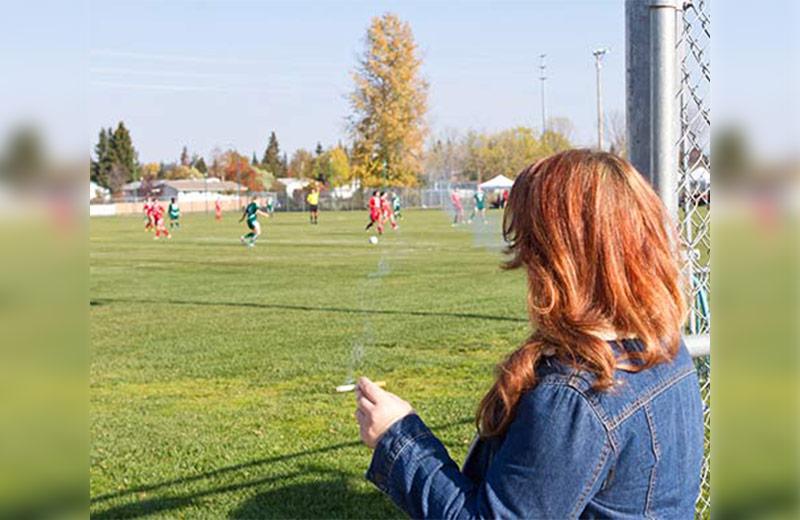Want to improve your own health and protect your developing baby from the harmful effects of tobacco and tobacco smoke? Women and their partners who use tobacco during pregnancy are encouraged to quit!
Why quit?
Maternal smoking and exposure to second-hand smoke during pregnancy may increase the risk of miscarriage, preterm birth and early detachment of the placenta. Smoking is also linked to growth restriction during pregnancy and low birth weight. Although a smaller baby may mean an easier labour and delivery, low birth weight is a predictor of decreased newborn health and survival.
After a child is born, infants of women who smoke are three times more likely to die from sudden infant death syndrome. Children who are exposed to second-hand smoke have an increased risk of respiratory problems and increased severity of asthma.
When to quit?
Ideally, women and their partners should quit using tobacco prior to pregnancy but if not, then it is important to quit anytime during pregnancy. Every day is a good day to quit smoking!
Support to help you quit smoking and protect your family
Although tobacco dependence is a complex addiction with many factors that make it difficult to quit, many women have been able to quit during their pregnancy.
Women are aware that smoking is not good for their health or the health of their babies and so many are very motivated to quit. It's sometimes difficult to quit during pregnancy because:
- Pregnancy speeds up a woman's metabolism and she may find that she is smoking even more to relieve her cravings.
- Pregnancy is sometimes a stressful time.
- A woman's social network may use tobacco and she may feel left out.
Understanding these factors may help in the development of plan to quit smoking.
Many women wonder if they can use nicotine replacement therapy such as the nicotine patch, gum, lozenge or inhalers when they are pregnant. Opinions vary on the use of these products in pregnancy so women should discuss the use of these products with their physician or pharmacist. Intermittent dosing of nicotine replacement therapies such as lozenges, gum or inhaler are preferred over continuous dosing of the patch.
It is likely that nicotine replacement therapy is safer than cigarette smoking as the mother and baby are only exposed to nicotine and none of the other 8,000+ chemicals in cigarette smoke. If you use nicotine replacement therapy instead of smoking cigarettes, the mother and baby are not exposed to the carbon monoxide that reduces oxygen uptake and flow to the developing baby.
Many women are able to quit during their pregnancy and enjoy the positive health effects that come with quitting. It's important to plan how to stay quit once the baby is delivered as relapse is common after the baby is born.
More information
For information and free support to help you quit, visit QuitNow, call 1-877-455-2233, or ask your pharmacist about the BC Smoking Cessation Program.
Let's raise children in tobacco free families!
This article was first published in the Summer 2016 issue of Healthier You magazine.














Comments